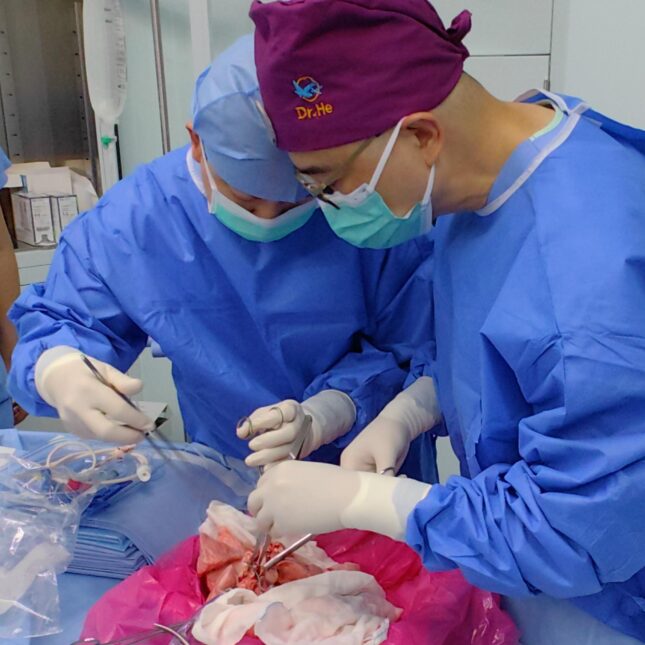
Photo courtesy : Nature Science
Chinese doctors have performed the world’s first lung transplant from a pig to a human, a breakthrough that could one day help ease the global shortage of donor organs. The milestone marks a major step forward in xenotransplantation research.
Xenotransplantation is the process of transplanting living cells, tissues, or organs from one species into another most often from animals to humans. In modern medicine, it usually refers to using genetically modified pig organs such as hearts, kidneys, or lungs to help bridge the widening gap between patients in need and available human donors.
The operation took place on May 15, 2024, at the First Affiliated Hospital of Guangzhou Medical University. Surgeons transplanted the left lung of a genetically modified pig into a 39-year-old man who had been declared brain-dead after a brain hemorrhage.
The pig’s lung had been specially altered through six genetic changes to make it more compatible with the human body. Remarkably, the organ worked for nine days before the experiment was ended at the request of the patient’s family.
Doctors said the lung showed no early signs of the dangerous immune reaction that usually destroys animal organs within minutes. It also avoided infections. However, after the first day, swelling and fluid buildup appeared, and by the third day the body’s immune system began rejecting the organ. Even so, the lung kept some function until the study was stopped – after 9 days of functioning.
This is important because lungs are considered the hardest organ to transplant across species. Unlike kidneys or hearts, they are directly exposed to air and germs, making rejection more likely.
The results, published August 25, 2025 in Nature Medicine, suggest pig organs might one day help fill the huge global gap in available donors. Experts, however, caution that more research is needed before such transplants could be used safely in living patients.


